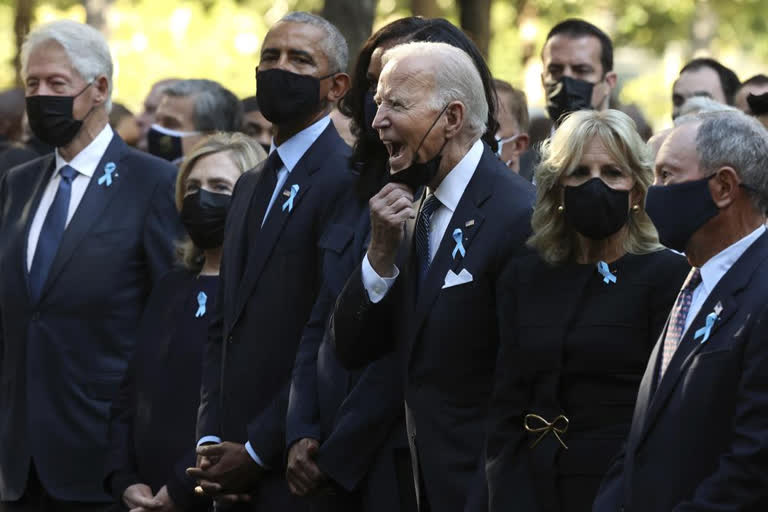Washington: President Joe Biden is ready to urge participants at the first White House Summit for Democracy to reverse an ongoing “recession” of democracy that is playing out at a time of rising authoritarianism around the globe and extraordinary strains on foundational institutions in the US.
The two-day virtual summit that starts Thursday has been billed as an opportunity for leaders and civil society experts from some 110 countries to collaborate on fighting corruption and promoting respect for human rights.
But the gathering already has drawn backlash from the United States' chief adversaries and other nations that were not invited to participate.
The ambassadors to the US from China and Russia wrote a joint essay in the National Interest policy journal describing the Biden administration as exhibiting a “Cold-War mentality" that will “stoke up ideological confrontation and a rift in the world."
The administration has also faced scrutiny over how it went about deciding which countries to invite.
The Biden administration, for its part, says the virtual gathering is a critical meeting at a moment when a profound diminishment of freedoms is trending around the globe.
Biden has said that confronting that dynamic is “the challenge of our time.”
White House spokeswoman Karine Jean-Pierre said Biden, who is scheduled to address the summit at its opening Thursday and again Friday, will call on participants to dedicate themselves to “reversing the democratic recession and ensuring that democracies deliver for their people."
Also Read:Biden, Putin to talk next week as tensions grow over Ukraine
Biden also plans to speak about the importance of voting rights at home, much as he did at an anniversary celebration of the capital's Martin Luther King Jr. Memorial, according to a senior administration official who previewed the event for reporters on the condition of anonymity.
At the time, the Democratic president called voting a “fundamental right” and decried efforts to curtail it as “the most un-American thing” imaginable.
The summit comes as US democracy faces grave challenges to its institutions and traditions.
Local elected officials are resigning at an alarming rate amid confrontations with angry voices at school board meetings, elections offices and town halls.
States are passing laws to limit access to the ballot, making it more difficult for Americans to vote.
And the Jan. 6 attack at the Capitol has left many in one US political party clinging to Donald Trump's false claims of a stolen election, eroding trust in the accuracy of the vote.
Biden has said passage of his ambitious domestic agenda — the $1 trillion bipartisan infrastructure bill he signed into law, as well as the roughly $2 trillion “Build Back Better Act” of social and climate change initiatives moving through the Senate — will demonstrate how democracy can improve people's lives.
Some advocates also want Biden to focus on other ways to shore up democracy at home.
One early test will come Thursday as the House moves to approve the Protecting Our Democracy Act, the third in a trio of bills — alongside the Freedom to Vote Act and the John Lewis Voting Rights Act — largely backed by Democrats in Congress but stalled by Republicans in the Senate.
“The United States has a thriving democracy, but it's been hurting in recent years,” said Michael Abramowitz, the president of Freedom House, whose annual report marked a 15th consecutive year of a global democratic slide.
